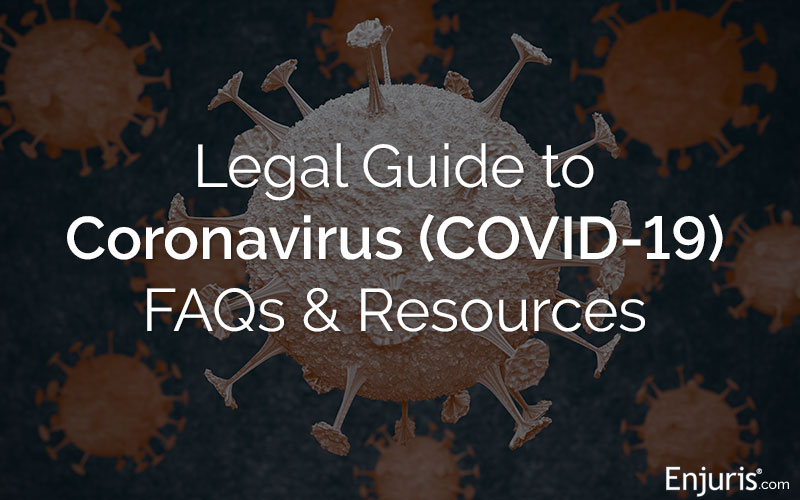What is a catastrophic personal injury?
The biggest personal injury cases involve individuals who have suffered a catastrophic injury. A personal injury is considered "catastrophic" if it is so severe that it requires extensive or long-term medical treatment, intensive reconstructive surgery, or results in permanent disfigurement, scarring or disability. Generally speaking, any injury that causes loss of motor skills or function is considered catastrophic. Catastrophic injuries cause substantial short-term and long-term pain and suffering for the individual impacted—not only physical discomfort, but also significant financial and emotional distress.
While a catastrophic injury is often traumatic for the survivor, it can also be life-changing for their spouse, family and friends. If you've survived a severe injury, then you probably face a number of hardships such as seeking full-time medical care, being forced to change professions or quit working altogether, and learning how to live within your new mobility or cognitive limitations. All of these difficulties can put tremendous stress and strain on survivors of catastrophic injuries and their loved ones. In some cases, you may be able to pursue compensation through a personal injury lawsuit, which will help you to focus on recovery.
Visit our Personal Injury Basics page to learn more about the basics of personal injury law, including negligence, finding a lawyer and the statute of limitations.
Common types of personal injuries
Which personal or catastrophic injury do you want to learn more about? Get real answers to tough questions about the legal obstacles you must overcome to pursue financial recovery for your pain.
Birth injuries
View all articles- 5 Most Common Types of Birth Injuries
- Guide to Cerebral Palsy and Birth Injury Law
- Erb’s Palsy Birth Injury Lawsuits
- Fetal Macrosomia & Medical Malpractice
- Hypoxic-Ischemic Encephalopathy (HIE) and Medical Malpractice
- Legal Ramifications of Midwife-Assisted Childbirth
- Proving Medical Negligence in a Birth Injury Lawsuit
- Shoulder Dystocia Birth Injuries
- Stillbirths: Medical Malpractice During Childbirth
- Torticollis Birth Injury Claims & Medical Malpractice
- Umbilical Cord Compression Birth Injury Lawsuits
- Uterine Rupture Lawsuits for Medical Malpractice
- What the Apgar Score Says About Your Baby’s Health
- What’s the Difference Between a Birth Defect & a Birth Injury?
- When is Birth Asphyxia Medical Malpractice?
Bone & muscle injuries
View all articles
Burn injuries
View all articles
Emotional injuries
View all articles
Head & brain injuries
View all articles- Guide to Traumatic Brain Injury (TBI)
- Resources to Help After a Brain Injury
- How to Recognize a Brain Injury and What You Should Do About It
- Concussions and Auto Accidents
- Rehabilitation and Therapy After a Brain Injury
- Second Impact Syndrome and Sports Injury Lawsuits
- Legal Guide to Brain Death
- What is CTE?
- A Loss of Oxygen Can Lead to an Anoxic Brain Injury
- Can You Recover Costs for the Accident that Caused a Brain Bleed?
- What is the Traumatic Brain Injury Act?
- Understanding the Hidden Challenges of Mild Traumatic Brain Injury
- What is the Glasgow Coma Scale?
Hip injuries
View all articles- Hip Replacement Surgery
- DePuy Orthopaedics Hip Replacement Devices
- Hip Replacement Complications
- Hip Replacement Lawsuits
- Hip Replacement Surgery Overview
- Metallosis from Hip Replacement Devices
- OMNIlife Hip Replacement Lawsuits
- Recalls for Hip Replacement Devices
- Smith & Nephew Hip Replacement Devices
- Stryker Orthopedics Hip Replacement Recalls and Lawsuits
- Wright Medical Hip Replacement Devices
- Zimmer Biomet Hip Replacement Recalls and Lawsuits
Workplace accidents
View all articles- Workers' Compensation
- 10 Telltale Signs of a Bad Workers’ Compensation Attorney
- Carpal Tunnel: A Leading Cause of Occupational Injury
- Common Injuries that Affect Nurses and Other Health Care Professionals
- Common Reasons Workers’ Compensation Claims Are Denied
- Directory of State Workers' Compensation Agencies
- FedEx Employee Injuries & Workers’ Compensation Claims
- Guide to Severance Pay, Unemployment, and Workers’ Comp Claims
- Guide to Social Security Disability Benefits
- H2S Exposure Illnesses & Workers’ Compensation
- Health Care Workers Are Suffering From Mental Health Issues
- Hearing and Vision Loss in the Workplace
- How Much Does A Workers’ Compensation Lawyer Cost?
- How to Prepare for a Workers’ Comp Doctor Evaluation
- How to Prevent Cold Work Injuries
- How To Prove Workplace Defamation & Sue for Damages
- How to Report a Workplace Injury
- Lump Sum vs. Lifetime Benefits For Your Workers’ Comp Settlement
- Manhole Injury Lawsuits and Workers’ Compensation
- Repetitive Strain Injuries in the Workplace
- Seeking Financial Compensation for a Firefighter or EMT Injury
- The Most Common Types of Occupational Diseases
- The Most Dangerous Professions in America
- Third-Party Workplace Injury Claims vs. Workers’ Compensation
- Tips for Finding a Skilled Workers' Compensation Lawyer Near You
- Tips to Help Prevent Heat Related Injuries
- What If My Employer Doesn’t Have Workers’ Compensation Insurance?
- What is Hazard Pay, and Who Are Essential Frontline Workers?
- White Finger Syndrome and Workers’ Compensation
- Workers’ Comp for Flight Attendants & Other Airline Employees
- Workers’ Compensation After a Poultry Plant Injury
- Workers’ Compensation For Cell Tower Technicians
Injuries from exposure
View all articlesWhat does an injury lawyer do?
A personal injury lawyer helps individuals who have sustained injuries in accidents to recover financial compensation. These funds are often needed to pay for medical treatment, make up for lost wages and provide compensation for injuries suffered. Sometimes a case that seems simple at first may become more complicated. In these cases, consider hiring an experienced personal injury lawyer. Read more














